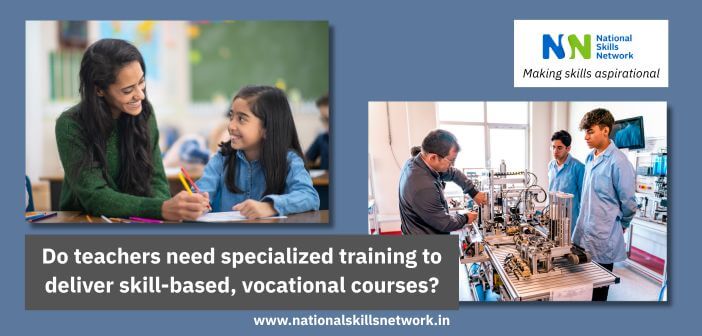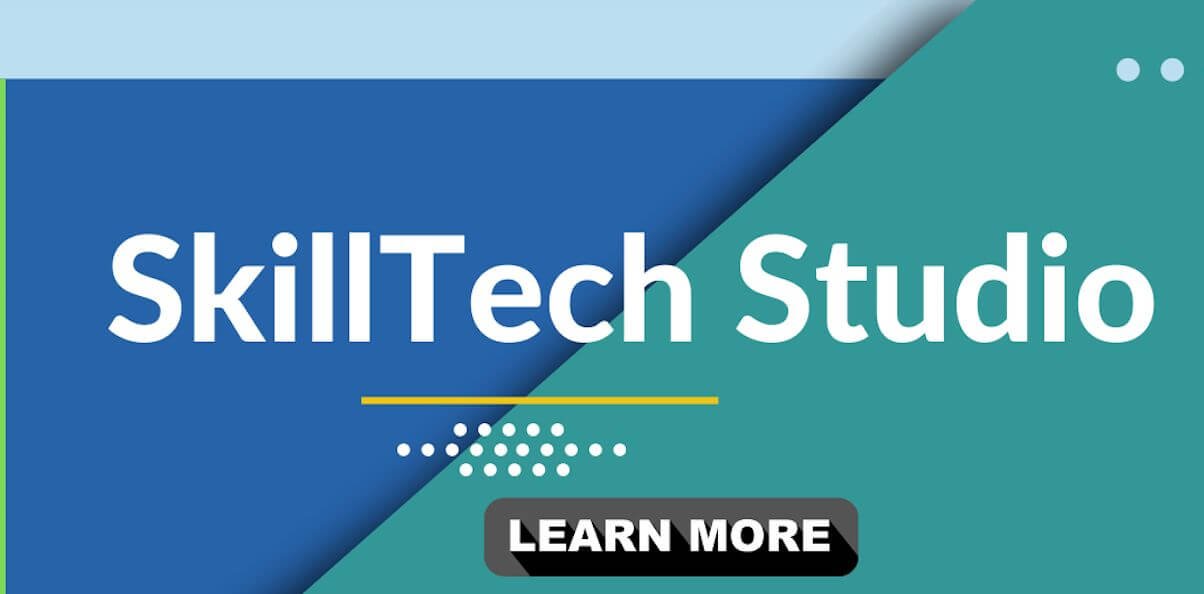Teachers play a decisive role in shaping the future of vocational education in India. The National Education Policy (NEP) 2020 places strong emphasis on skill-based learning across schools and colleges. This makes it important to examine how vocational courses are delivered today, the challenges teachers face, and what must change for the future.
This also raises a critical question: Do teachers need specialized training to deliver skill-based vocational courses effectively?
Teachers are not just instructors of trades and skills, but crucial enablers of aspirations, employability, and dignity of work.
Current status of vocational teachers’ professional development
Vocational education in schools is still evolving, and a lot depends on teachers and trainers in making it effective and enjoyable. For example, in many government schools, vocational subjects such as Beauty and Wellness, Hospitality, Healthcare, and Agriculture are taught by inducting external trainers, subject experts or NSQF-certified teachers. While this model ensures subject coverage, it raises questions about their career development and professional upward mobility.
When it comes to in-school teachers, most of them are not formally trained in vocational subjects. They lack industry exposure, and only few of them would have real-world work experience in the trades they teach. As a result, the teaching often focuses on theory and knowledge sharing, with practical components constrained by infrastructure and real-world exposure gaps.
Vocational education is positioned differently at each level of schooling:
- Middle school: Students are introduced through playful exposure and experiential activities such as “bagless days” that allow them to explore the world of work.
- High school: Vocational courses are listed formally in the curriculum as elective subjects.
- Higher secondary: The subjects gain structure, with specific theory and practical hours mandated.
The way courses are executed also varies.
- Crafts and hobbies are sometimes taught by teachers who pursue them as personal interests.
- Technology-related subjects like IT and coding are increasingly delivered through online platforms from companies like IBM and Microsoft, as well as government-backed online learning platforms.
For most vocational trades, however, delivery continues to depend on external trainers, who may be excellent as subject/technical experts but lack pedagogic skills.

Current status of teachers’ professional development in higher education
In higher education, vocational education is gaining momentum as part of NEP 2020’s call for a multidisciplinary, employability-driven curriculum. Colleges and universities are adopting different models to integrate vocational subjects:
- Skill-based courses across all streams: Vocational electives are introduced in Science, Humanities, and Commerce to strengthen employability and broaden learning.
- Voc programs with MEME flexibility: The Multiple Entry-Multiple Exit (MEME) model and Apprenticeship Embedded Degree Programs (AEDP) allow students to pursue vocational learning with practical industry exposure.
- Engineering and Technology integration: The All India Council for Technical Education (AICTE) has mandated skill-based electives to ensure technical students graduate with both theory and applied knowledge.
The role of teachers in colleges has also expanded. Beyond delivering content, they are expected to mentor students, integrate vocational training into mainstream courses, and build partnerships with industry for practical exposure.
Are we asking too much of our teachers? Both at school and college levels? Aren’t the teachers already performing many ‘non-academic’ duties that could go into administrative activities? How do we prepare them for the upcoming challenges?
Challenges in teacher preparation to teach skill-based vocational subjects
Despite the progress, several challenges persist in preparing teachers for vocational education:
- Lack of training and exposure: Teachers often lack formal qualifications in vocational subjects and have limited connections to industry practices.
- Low motivation and stigma: Vocational education is still seen as a secondary option compared to academic subjects, affecting both motivation of the teachers and student participation.
- Unclear career paths: Vocational teachers face uncertain career progression, with many employed on part-time or contractual terms.
- Infrastructure gaps: Practical training facilities are limited in schools and colleges, restricting effective delivery.
- Peripheral positioning: Vocational subjects are sometimes viewed as optional add-ons, not integral to mainstream learning.
What NEP 2020 frameworks recommend
The NEP 2020 and related policy documents place strong emphasis on teacher capacity building at the school level.
- The National Curriculum Framework (NCF) 2023, Chapter 9 highlights the need for continuous professional development (CPD) of vocational teachers.
- National Professional Standards for Vocational Teachers (NPST) provide guidelines for competencies, assessment, and career progression.
- Online platforms such as Diksha and Nishtha offer large-scale, accessible training resources for teachers.
These frameworks recognize that vocational education cannot succeed without empowering teachers with the right skills, exposure, and support systems.
The road ahead
To align with NEP 2020’s vision, schools and colleges must reimagine the role of teachers in vocational education. Some priorities include:
- Awareness and advocacy: Promote teaching as a viable career path in vocational subjects and invite industry professionals to serve as adjunct faculty or mentors.
- Innovative professional development: Redesign Training of Trainers (ToT) models to include peer learning, teacher communities, and strong industry-academia collaboration.
- Recognition and rewards: Build incentives and recognition systems that encourage teachers to specialize in vocational education.
- Teacher internships: Link teacher professional development with internships in industry, making them part of CPD.
- Technology integration: Equip teachers not only to use digital platforms but also to co-create content and design innovative learning experiences.
- Teacher agency: Encourage decision-making and ownership, giving teachers confidence to shape the way vocational education is delivered.
- School and college leadership: Heads of institutions must treat vocational education as core, ensuring resources, guidance, and consistent implementation.
Teacher training and support institutions
Several initiatives already support teacher preparation and continuous learning:
At the school level: Platforms like NISHTHA and Diksha provide structured CPD modules for school teachers.
For colleges and HEIs:
- The Malaviya Mission focuses on NEP-aligned training for college/university teachers.
- NITTTR offers professional development for engineering and technical faculty.
- Sector Skill Councils (SSCs), such as MESC, design specialized upskilling programs for vocational teachers.
These platforms and institutions like these we’re all set to embark on scaling teacher development across India.
Towards a skilled India through empowered teachers
The success of vocational education under NEP 2020 will ultimately rest on the teachers who deliver it. By addressing gaps in training, recognition, and industry exposure, and by equipping teachers with the confidence to innovate, India can position vocational education as a respected and integral part of learning. The next decade is an opportunity to build a team of professional, future-ready vocational teachers who can inspire students to see skills not as an alternative, but as a pathway to growth and success.















kd2768271@gmail.com